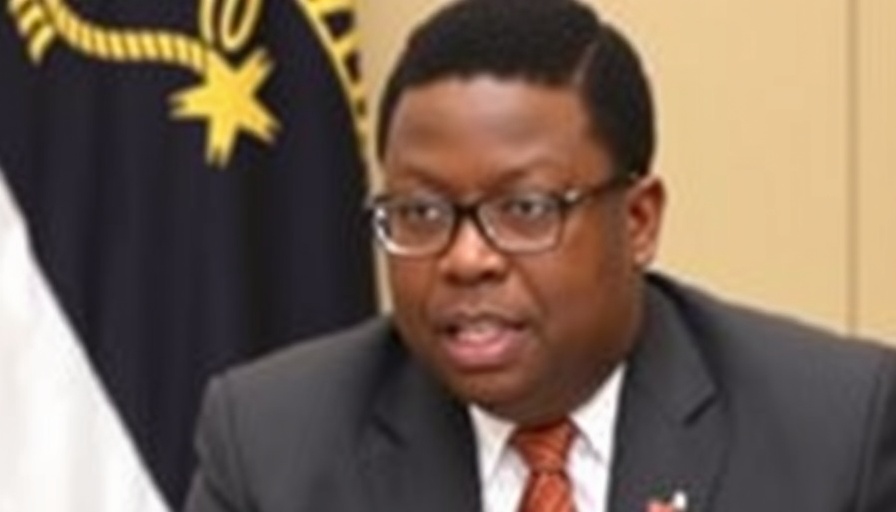
Understanding the Budget Impasse: A Call for Unity
As South Africa grapples with a budget impasse, Transportation Minister Fikile Mbalula's recent comments point to a disheartening trend among businesses—their erratic responses to a critical moment in the nation’s governance. Business leaders and politicians alike must realize that this situation demands a united front. The implications of the current deadlock extend beyond boardrooms and into the lives of citizens, particularly in the wake of pressing challenges such as unemployment, inflation rates, and service delivery protests.
The Interplay of Politics and Economic Recovery
The stakes could not be higher as national elections loom, particularly concerning the governance of the African National Congress (ANC) amid growing skepticism surrounding their policies. With the Economic Freedom Fighters (EFF) and the Democratic Alliance (DA) vying for voter support, clarity around economic policies becomes essential. The business sector's erratic behavior complicates coalition-building efforts, ultimately impacting economic recovery initiatives designed to mitigate unemployment rates and enhance social grants to those in need.
The Ripple Effects on Critical Issues
Mbalula emphasized that the inconsistency of businesses could have far-reaching consequences in addressing social issues such as gender-based violence, racial equality, and service delivery. Communities already facing challenges, such as load shedding due to the deep-seated Eskom crisis, cannot afford further economic instability. The government’s policies should reflect a commitment to tackle these issues comprehensively while engaging with private sector leaders to foster solutions.
A Closer Look at Government Policies
The South African government has taken strides in addressing multiple crises, yet frequent cabinet reshuffles threaten stability. The intersection of government responsiveness and accountability has become palpable, especially as corruption investigations arise amidst public consciousness. Hence, policies addressing issues like COVID-19 recovery, healthcare reforms, and climate change must be responsive to community needs and involve public-private partnerships that bring together business and the government.
Future Predictions: Navigating the Unknown
As we look to the future, political analysts predict that businesses will need to stabilize their positions while navigating complexities in the market. International trade agreements and foreign investment will depend on the ability of South African leaders to establish a cohesive national agenda, transcending self-interest for the collective good. The potential for youth unemployment to escalate remains high without a strategic push for skills development and innovation hubs, making it imperative for businesses to become stabilizing forces, rather than erratic actors.
Lessons from the Past: A Call to Action
History teaches us that inaction during times of political and economic crisis often leads to deeper inequalities and social unrest. The ANC's political prowess must adapt; otherwise, upcoming municipal elections might yield dire consequences. Mbalula's words resonate as they advocate for a shift in approach from both business leaders and politicians. Now is the time for a collaborative effort that prioritizes the well-being of all South Africans.
In conclusion, Fikile Mbalula's poignant observation about the economic landscape challenges all stakeholders to confront the truth; only through decisive action, can South Africa regain stability and work toward an inclusive and prosperous future.
Join the conversation on what can be done to address the budget impasse effectively; your voice matters in shaping South Africa’s future.
 Add Row
Add Row  Add
Add 




Write A Comment